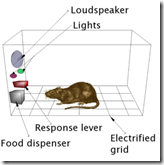US Code updates via RSS
 We now offer notification of changes to the US Code via RSS. It’s a beta service, and we’re eager for your reaction to it. You can access the service by clicking the standard RSS icons next to the listing-by-Title on our main US Code page (we plan to put icons on every US Code page, but haven’t done so yet).
We now offer notification of changes to the US Code via RSS. It’s a beta service, and we’re eager for your reaction to it. You can access the service by clicking the standard RSS icons next to the listing-by-Title on our main US Code page (we plan to put icons on every US Code page, but haven’t done so yet).
A couple of notes:
First, the RSS feed is tied to the Classification Tables published by the Law Revision Counsel’s Office at the House of Representatives. This means that you’ll be notified of changes as soon as their ultimate location in the Code is known, which is usually significantly after the law is passed by Congress. For up-to-the-minute updating, you’ll still need Thomas. A really good, if dated, guide to US Code updating is here.
Second, the service is offered on a Title-by-Title basis because (based on observation) we don’t think the volume in any Title (even 26) is likely to become overwhelming. We could be wrong about that — and we might also be able to format the information in the feeds in a way that makes it easier for you to find exactly what you want.
That’s the great thing about an experimental service — we can change it, and we’re eager for your suggestions. Let us know.



 Law is a Bottomless-Pit, it is a Cormorant, a Harpy, that devours every thing.
Law is a Bottomless-Pit, it is a Cormorant, a Harpy, that devours every thing.

 An advisory opinion is a sort of judicial “dry run” — the court states a non-binding opinion on a legal question submitted by a legislature or government official without the filing of a case. See, e.g., the
An advisory opinion is a sort of judicial “dry run” — the court states a non-binding opinion on a legal question submitted by a legislature or government official without the filing of a case. See, e.g., the  On May 2, 1927, the US Supreme Court ruled in
On May 2, 1927, the US Supreme Court ruled in 